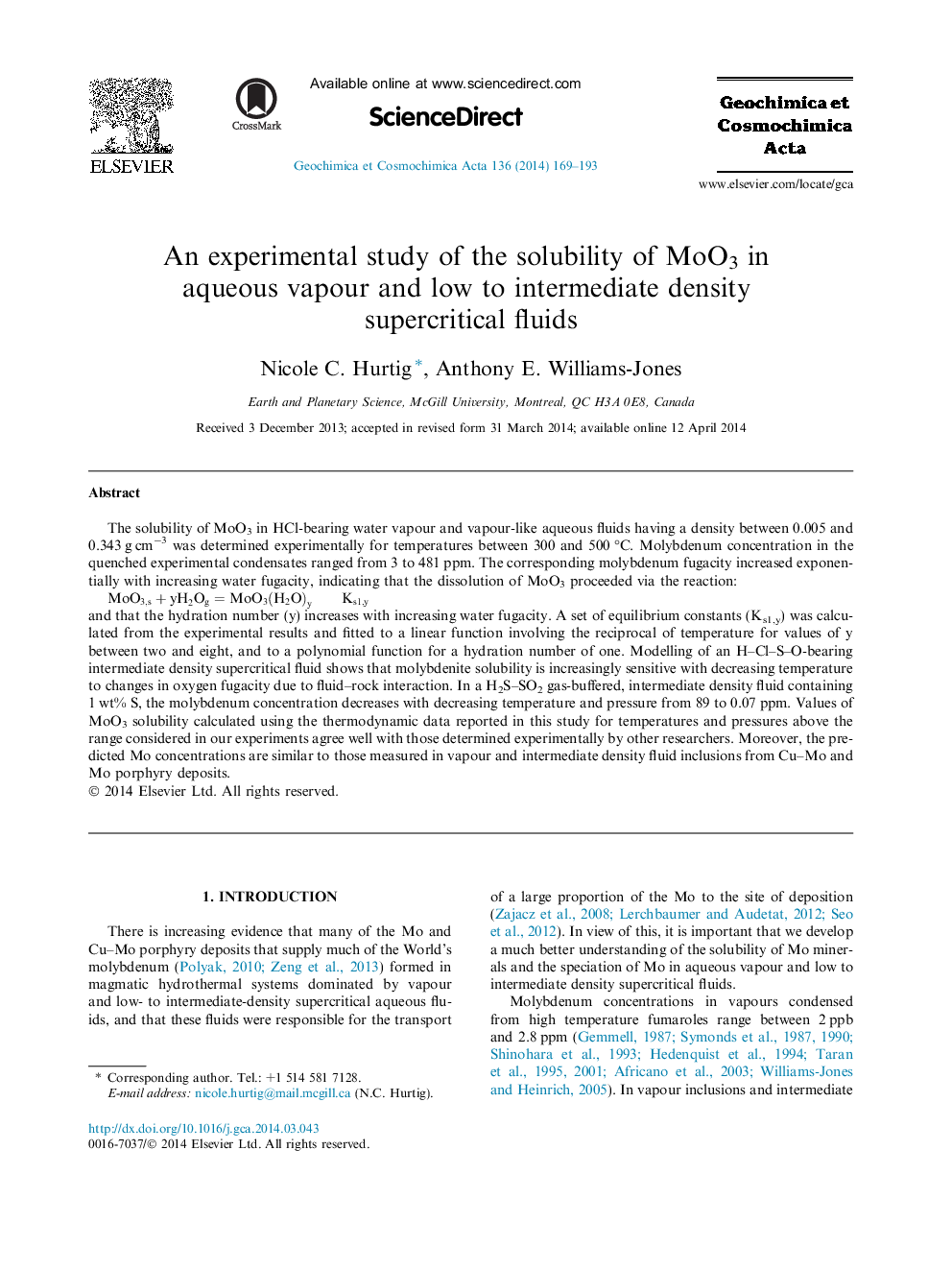| Article ID | Journal | Published Year | Pages | File Type |
|---|---|---|---|---|
| 6438606 | Geochimica et Cosmochimica Acta | 2014 | 25 Pages |
Abstract
and that the hydration number (y) increases with increasing water fugacity. A set of equilibrium constants (Ks1,y) was calculated from the experimental results and fitted to a linear function involving the reciprocal of temperature for values of y between two and eight, and to a polynomial function for a hydration number of one. Modelling of an H-Cl-S-O-bearing intermediate density supercritical fluid shows that molybdenite solubility is increasingly sensitive with decreasing temperature to changes in oxygen fugacity due to fluid-rock interaction. In a H2S-SO2 gas-buffered, intermediate density fluid containing 1Â wt% S, the molybdenum concentration decreases with decreasing temperature and pressure from 89 to 0.07Â ppm. Values of MoO3 solubility calculated using the thermodynamic data reported in this study for temperatures and pressures above the range considered in our experiments agree well with those determined experimentally by other researchers. Moreover, the predicted Mo concentrations are similar to those measured in vapour and intermediate density fluid inclusions from Cu-Mo and Mo porphyry deposits.
Related Topics
Physical Sciences and Engineering
Earth and Planetary Sciences
Geochemistry and Petrology
Authors
Nicole C. Hurtig, Anthony E. Williams-Jones,
